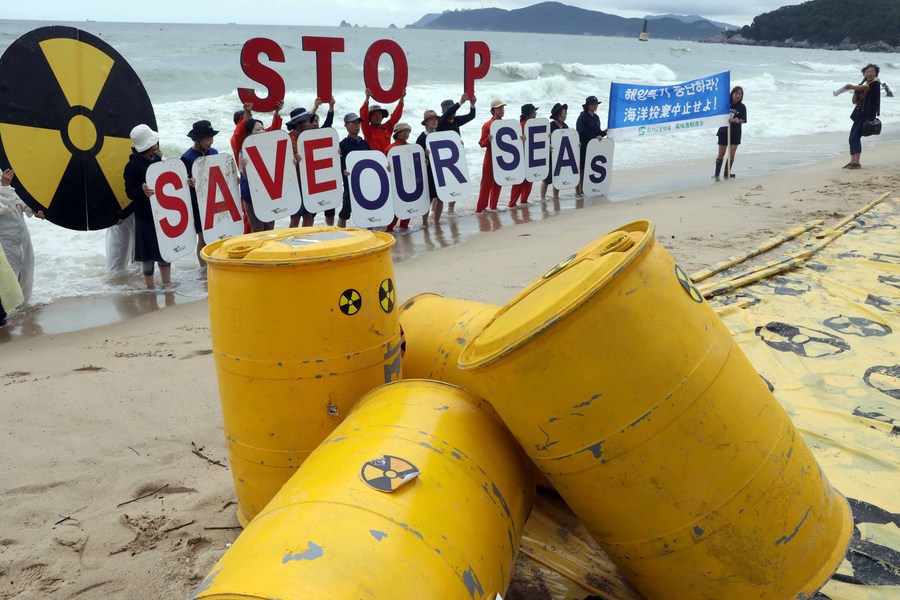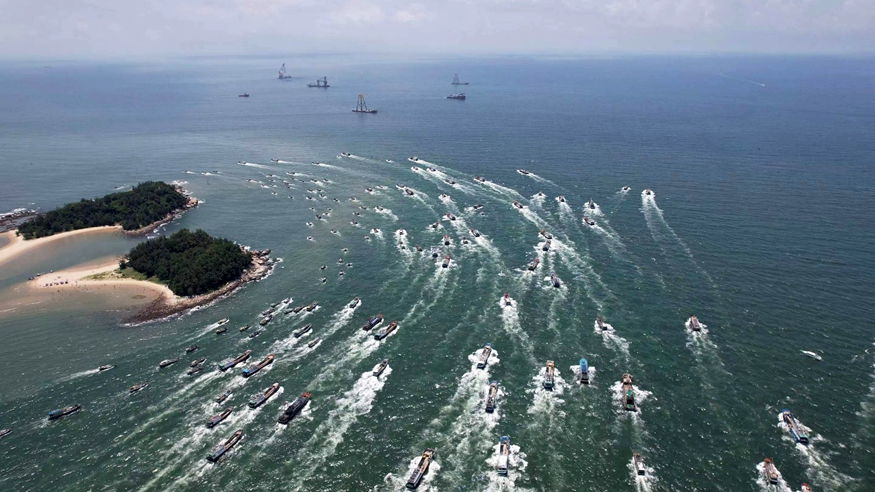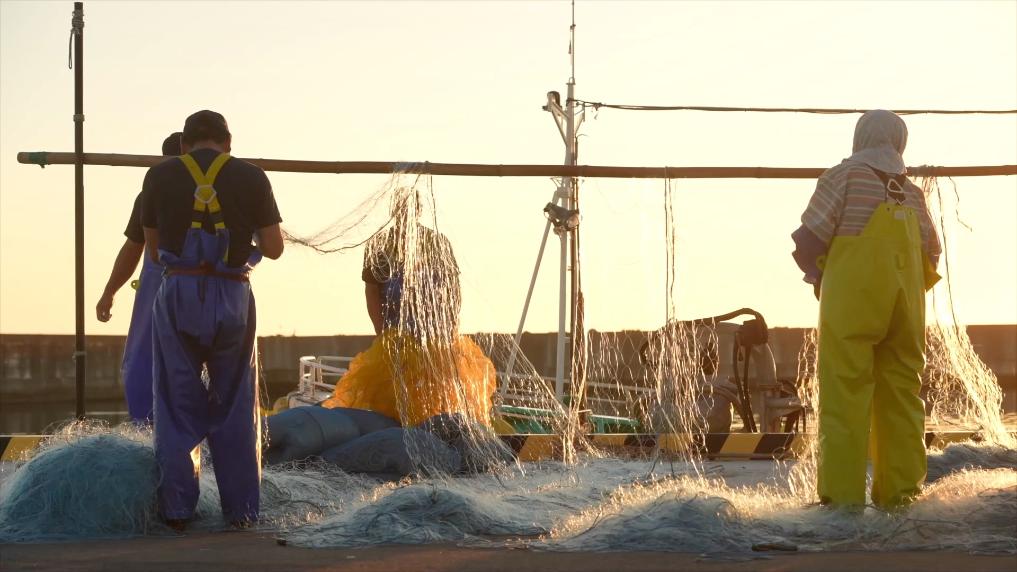
People gather in Busan, South Korea, Aug. 24, 2023, to protest against Japan's decision to release nuclear-contaminated wastewater. (NEWSIS via Xinhua)
BEIJING, Aug. 24 (Xinhua) -- The global community should be alarmed by Japan's release of nuclear-contaminated water into our shared ocean, and the country must be urged to reconsider this unjustified and irresponsible action.
The Japanese government, in disregard of strong criticism and opposition from the international community, unilaterally started releasing the Fukushima nuclear-contaminated water into the ocean on Thursday.
As a Chinese foreign ministry spokesperson has said, its impact goes beyond Japan's borders, and the issue is by no means a private matter for Japan.
The Fukushima nuclear accident is one of the world's most serious nuclear disasters to date. As a result, the contaminated water is known to have more than 60 radioactive elements, known as radionuclides, which makes its discharge completely different from the normal operation of nuclear power plants.
No viable technology exists to effectively treat such a multitude of nuclides, and certain long-lived variants might disperse through ocean currents, leading to unforeseeable repercussions for marine ecology and human health.
The Advanced Liquid Processing System (ALPS), Japan's key facility for treating nuclear-contaminated water that was put into trial operation in March 2013, has frequently experienced malfunctions. The world needs to know how to ensure the efficacy and reliability of ALPS as the facility ages.
Not only the volume of nuclear-contaminated wastewater in the plant is substantial and its composition is complex, but the disposal timeframe will last for an unprecedented duration.
The lack of credibility and scientific assessment has cast doubts on the rationale behind Japan's 30-year release plan, and proceeding with the plan unilaterally without sincere international engagement would set an even more dangerous precedent at a time when the planet, particularly its oceans, is facing numerous challenges and threats.
Japan should have actively engaged and gathered input from all stakeholders, including domestic fishermen and the neighboring countries around the Pacific Ocean region. But it never intends to have thorough consultations with other concerned parties.
Japan "rationalizes" its release plan with only the safety assessment conducted by the International Atomic Energy Agency (IAEA), but the assessment has quite evident limitations and faces allegations of biases. The IAEA cannot prove that the ocean discharge plan is the only and optimal option for treating the nuclear-contaminated water.
China urges the Japanese side to consider the international community's concerns, execute the disposal of nuclear-contaminated water in a scientific, secure and transparent manner, and accept strict international supervision.
The release of nuclear-contaminated water must cease unless a transparent monitoring system is in place.
By dumping the water into the ocean, Japan is spreading the risks to the rest of the world and passing an open wound onto the future generations of humanity. ■












